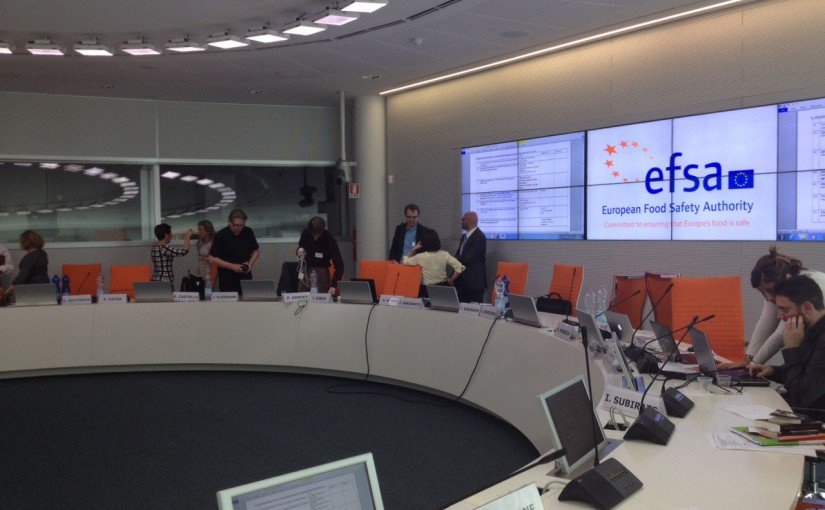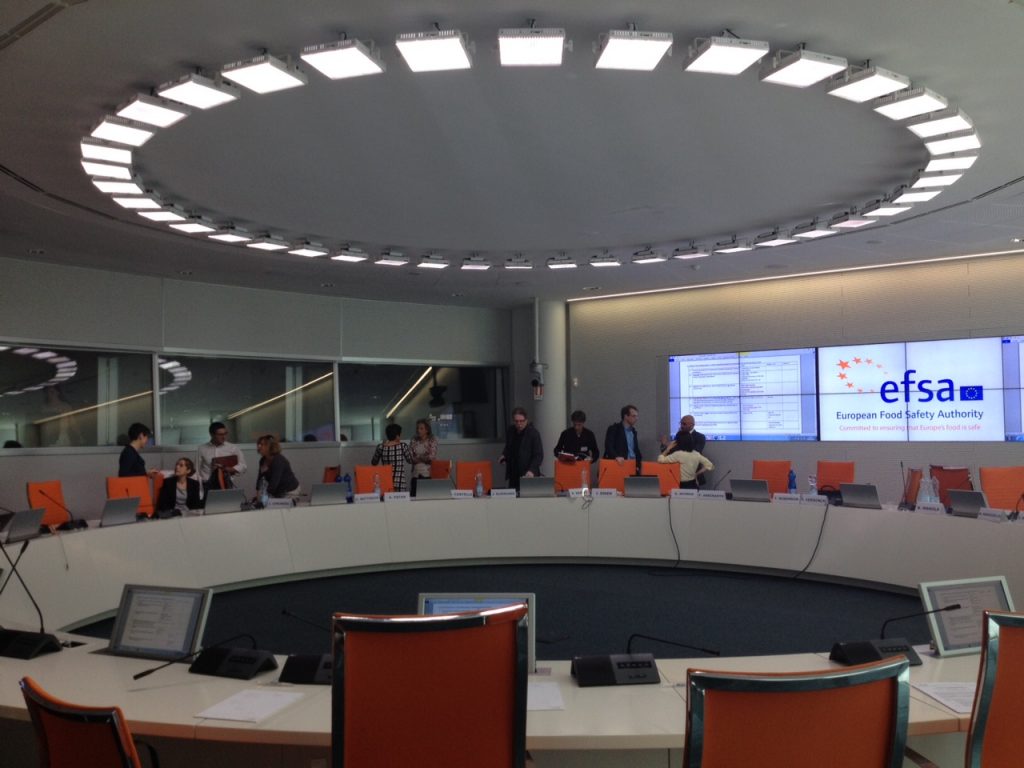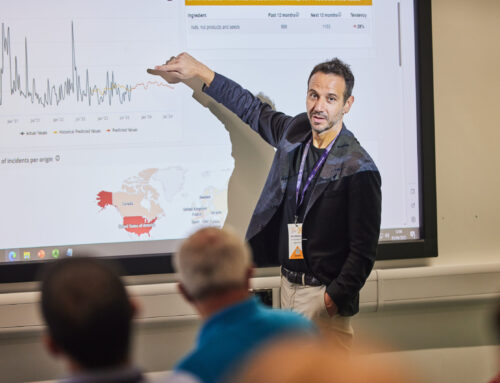
On May 13th 2015, the European Food Safety Authority (EFSA) and the Unit of the European Commission responsible for e-infrastructures, organised a workshop on the way European e-infrastructures may support the activities of EFSA. The meeting followed up a series of initial discussions and brainstorming between EFSA and various EC Units on how data-related activities and open policies may be aligned so that synergies may be found. It also came at an important turning point for EFSA that is working on becoming an open science organisation: the Open EFSA initiative has already made available a position paper for public consultation; it has organised a workshop with its key stakeholders; and it has a preliminary implementation plan in place.
The idea behind this Workshop on e-Infrastructures Supporting Food Risk Assessment was to invite a handful of initiatives and experts from the e-infrastructures initiatives that the European Commission has funded – including people from institutions such as the European Bioinformatics Institute (EBI), the Information Science & Technology Institute of the National Research Council of Italy (CNR-ISTI), and e-infrastructures like OpenAIRE and diXa. And to give the opportunity to EFSA teams to find out about methodologies, tools and services that may be useful for their work.

The brand new and impressive building of EFSA in Parma that hosted the workshop.
It was my pleasure to join this meeting to present a couple of things that we are doing that are of relevance to EFSA. Together with Imma Subirats from FAO, the brand new agINFRA.eu research hub was introduced, explaining the work that has been carried out so far and the services that the hub provides to research institutions like EFSA. Furthermore, together with Natalia Manola from the University of Athens and the Athena Research Center, we explained the connection of agINFRA.eu as a thematic aggregator and OpenAIRE as the pan-European open research e-infrastructure, and reflected on ways in which they can support the open access and open data activities of EFSA. Specific technologies and software applications have also been introduced, such as the way that the text and data mining technologies of the OpenMinTeD e-infrastructure and the big data technologies of Big Data Europe may support data-intensive applications of EFSA.
I think that what I enjoyed most was the opportunity to give to the colleagues at EFSA my reflections on some of the challenges that they should expect to face in the process of becoming an open science organisation. In my talk, I particularly reflected on three different aspects of this process, using examples from our work and experience:
– How data e-infrastructures may support EFSA operations
– How EFSA will be positioned within the food safety data ecosystem
– How innovative IT services can be developed to support the EFSA stakeholders and decision makers
It was very interesting to talk with the teams in EFSA that work on data collection, warehousing and analysis for evidence support and decision making. I found out that EFSA is responsible for periodically collecting different types of information (e.g. on pesticide outputs on active substances) from the corresponding food safety and risk assessment agencies in each EU member state. And that advanced models and methods (including machine learning algorithms and analytic forecasting techniques) are being used to support the scientific advice that EFSA’s experts generate. The EFSA journal is practically a large repository of publications that includes all scientific opinion documents that EFSA publishes (some 500 documents per year) and an interest to extract and link to the primary data that have informed these scientific opinions. And many other internal projects that are interested to take advantage of the e-infrastructures that were presented.

The workshop took place at an impressive room, typically used for hosting the EFSA Board meetings. No, it did not take off at the end of the day.
The next step, as far as Agro-Know and FAO are concerned, will be including EFSA’s journal publications in agINFRA and AGRIS. And then to try to enhance searching within these publications by taking advantage of text mining techniques that will help us extract information on data and figures that these publications include. Furthermore, the EFSA experts have been invited to the upcoming meeting of the Research Data Alliance (RDA) Interest Group on Agricultural Data Interoperability (IGAD) to be hosted by INRA in Paris. It will be exciting to see a Working Group on food risk assessment data to be formed: there is much of an interest on harmonising access and view of information such as foodborne disease outbreaks and food product recalls, which can be complemented by work on the way in we can exchange and share information.




